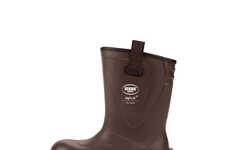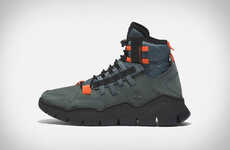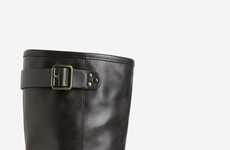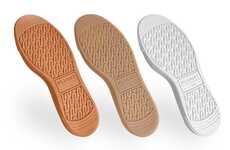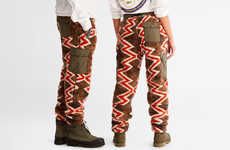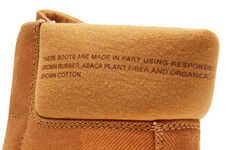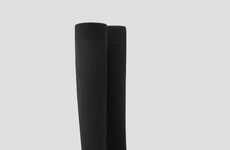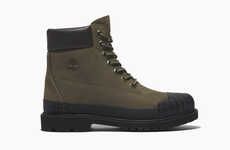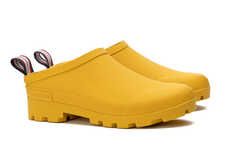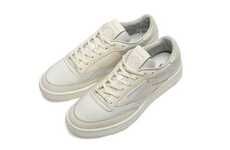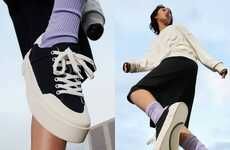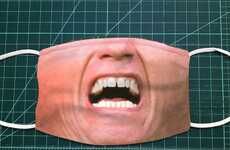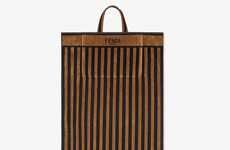
Baxter Wood Works with Recycled & Natural Materials
Laura McQuarrie — April 24, 2021 — Eco
References: baxterwood & fastcompany
Baxter Wood sets itself apart with sustainable rain boots that don't contain petroleum-derived rubber. Instead, the brand uses natural rubber derived from trees. The Hevea Chelsea Boots are available in both men's and women's styles and several classic colors.
Through the brand's Buy Back program, customers can send back worn-out rain boots of any kind and get a credit. Once received, old pairs of rain boots are processed, shredded and turned into everything from playground surfacing to roads and kickboxing bag filler. According to the brand's estimations: "By using one tonne of rubber from recycled rubber rain boots to surface an arena we’ll save three tonnes of C02 from being emitted into the atmosphere."
Through the brand's Buy Back program, customers can send back worn-out rain boots of any kind and get a credit. Once received, old pairs of rain boots are processed, shredded and turned into everything from playground surfacing to roads and kickboxing bag filler. According to the brand's estimations: "By using one tonne of rubber from recycled rubber rain boots to surface an arena we’ll save three tonnes of C02 from being emitted into the atmosphere."
Trend Themes
1. Sustainable Footwear - The rise of natural and recycled materials in the fashion industry presents opportunities for companies to disrupt the traditional production of footwear and meet the demands of eco-conscious consumers.
2. Circular Economy - Baxter Wood's Buy Back program demonstrates the potential to create a closed-loop system where products reach the end of their life cycle and are repurposed or recycled, leading to a more sustainable and economically efficient business model.
3. Upcycling - The transformation of old rain boots into alternative materials such as playground surfacing or kickboxing bag fillers showcases the potential to turn waste into valuable resources and the importance of considering the entire life cycle of a product.
Industry Implications
1. Footwear Manufacturing - Companies in the footwear industry can explore the use of sustainable and recycled materials in their manufacturing processes and implement buy-back or take-back programs to engage with eco-conscious consumers and create a new source of revenue.
2. Waste Management - The repurposing and recycling of rain boots into alternative materials such as playground surfacing or kickboxing bag fillers presents opportunities for waste management companies to partner with fashion brands and reduce the amount of waste sent to landfills.
3. Construction - The use of recycled rubber rain boots as material for surfacing arenas or roads showcases the potential for the construction industry to utilize recycled materials and reduce carbon emissions in their building projects.
3.8
Score
Popularity
Activity
Freshness


